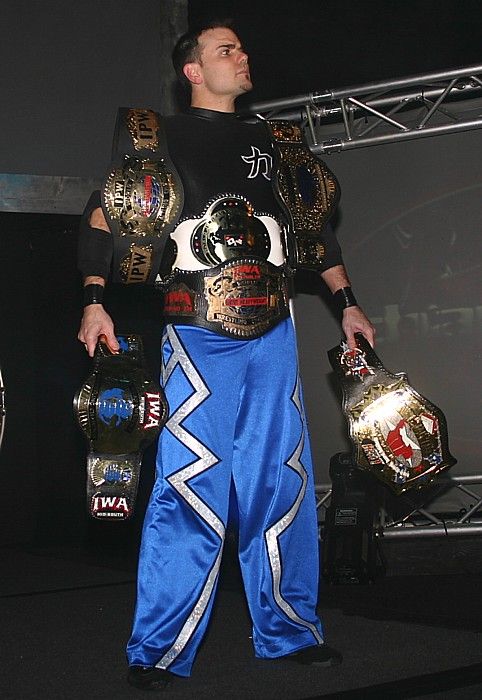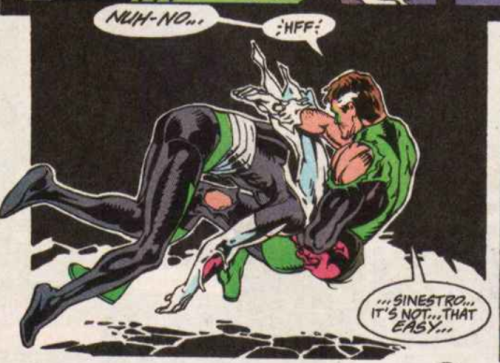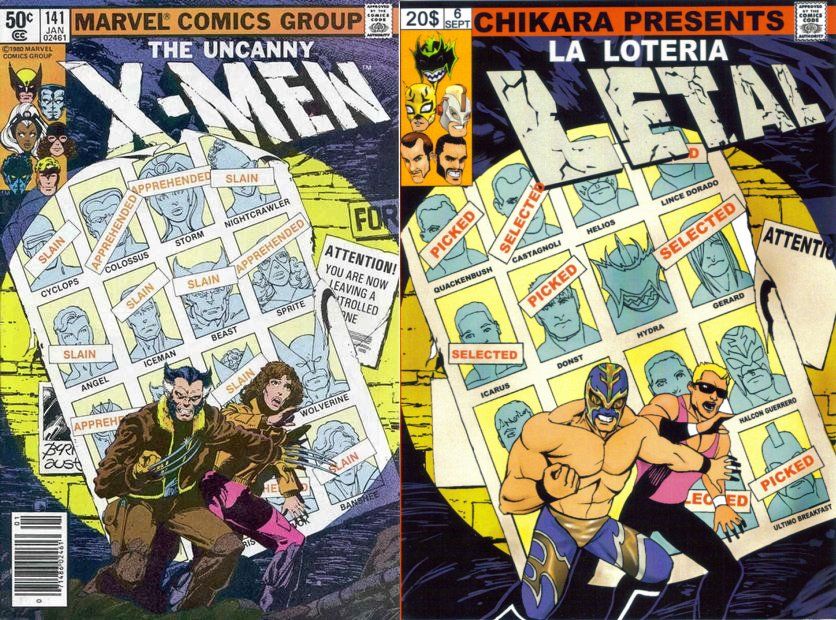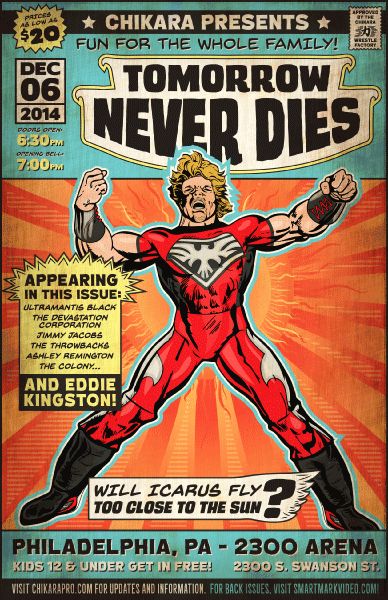Many fans were surprised when it was announced last month that former pro wrestler CM Punk will make his Marvel writing debut in February's Thor Annual #1, but of course the connection between comics and wrestling goes way back: Icons like the Ultimate Warrior, Mick Foley, Raven, Christopher Daniels, Booker T and Tony Atlas have all tried their hands at comics. However, it isn't a one-way street, as one pro wrestler has used his passion for comics to inform an entire wrestling promotion: Philadelphia's CHIKARA.
The man behind it, Mike Quackenbush, started wrestling in 1994, and made a name for himself on the independent scene during the Attitude Era and became a promoter in 2002 when he founded CHIKARA. Over the years, he has wrestled around the world against top names like CM Punk, Jushin Thunder Liger, Cesaro and Colt Cabana. But with CHIKARA Quackenbush has expanded into writing complex geek-infused storylines featuring throwbacks to comics and movies, including one memorable entrance involving a DeLorean.
On Saturday, CHIKARA will present Tomorrow Never Dies, live in Philadelphia and on iPPV, so I spoke with Quackenbush about his passion for comics and wrestling.
Chris Arrant: People know you best as a wrestler and now the "director of fun" for CHIKARA. I asked to interview you because of CHIKARA’s deep connection to comics and superheroes, through the characters, costumes and the comic that was done recently.
Mike Quackenbush: CHIKARA is often described as a “comic book come to life” because of the way our stories are told. There is a deep and meticulously maintained continuity to what we make, and the stories evolve in a serialized fashion. You’d have a hard time knowing what is going on if you read Brad Meltzer’s Identity Crisis out of order; you have to read those seven books in the order they were released. The CHIKARA continuity rolls out similarly. There is a real love for that artform within our ensemble. I’d bet 90 percent of the people working at CHIKARA have read, or still read, comics consistently. So you’ll not only see the influence reflected in things like our artwork and costuming, but borrowed elements from certain storytellers -- as an example, using some of the same techniques Alan Moore and Dave Gibbons employed to convey a sense of dread to readers of Watchmen.
Would you say the CHIKARA backstage is more prone to having comics laying around than other wrestling shows?
That could be said without a doubt.
American comics sit in a similar spot that wrestling does for some people not interested in it – kind of viewed as a puerile form of entertainment. But you see wrestling and superheroes both influenced by similar things. What do you see as the connection between superheroes/comic books and professional wrestling?
I do think they are tightly linked. We’re talking about larger-than-life characters, good guys and bad guys, battling it out in contest of superhuman feats, while wearing outlandish costumes. So many of the elements that I have always enjoyed about superheroics are also part of the pro-wrestling sphere.
What do you see as pro wrestling's most "comic book"/"superhero" moments, and vice versa? Where do you see superhero comic books most "wrestling" moments?
That’s funny you mention that. I remember reading Green Lantern #50, back when Ron Marz was making making me hate Green Lantern, and there’s this fight between Hal and Sinestro where, if I recall correctly, Hal DDT’s Sinestro on the moon. Darryl Banks was the artist, I think. I later saw a pin-up he did with the JLA, and in the background of that shot Mister Miracle has someone in a Boston Crab, and Blue Beetle is suplexing a guy. Seeing that stuff puts a smile on my cranky face. Anyway, I think the convergence of wrestling and comic books is really evident in our piece The Ashes of CHIKARA (pardon the shameless plug). The heroes lost in time showing up to save the day at National Pro Wrestling Day in a DeLorean time machine? That’s less Monday Night Raw and more Crisis on Infinite Earths.
What about you – when did your interest in comic books begin?
Very early on. My grandparents would sometimes take me to a recycling plant where coverless comics returned from the newsstand vendors were bundled with twine and sold by the pound. So I had issues of Action and Detective and DC Comics Presents from a very early age. Likewise, I loved watching superhero-related television shows, like Batman with Adam West or the hopelessly boring yet somehow hypnotic The Amazing Spider-Man with Nicholas Hammond. The live-action versions were always more engaging to me.
You've been working in the wrestling industry since 1994. Are there a lot of wrestlers who are comics fans? Have you noticed a chance in their numbers as time as went on?
There’s a big generation of guys active in wrestling right now that came up during the time that comics were sort of a “nerd thing,” like pro wrestling is a “nerd thing.” And there are so many shared tropes. Now, thankfully for all of us, comic book characters are having their day in the sun. We’re enjoying the Golden Age of comic book movies. Marvel's The Avengers is the biggest action movie of all time. They’re making big-budget Aquaman and Black Panther movies that really will come out in my lifetime (notes the guy that read vague development news about Tom Cruise as Spider-Man in old issues of Comics Scene magazine). The generation that advertisers want grew up on comic books, and so we are enjoying the spoils. There’s never been a better time for nerds like us to wear it on our sleeves.
You recently printed a collected edition of the CHIKARA webcomic, titled CHIKARA: Untold Tales. Do you plan on doing more comics for the CHIKARA character and storylines?
We’ve dabbled in print comics before (maybe back in season 7 or 8 of CHIKARA) and we had a webcomic as well. Those are great platforms to tell stories that are not well suited to being told in a ring. There are a lot of stories like that when you consider how crazy some of our characters are. So if there is a demand for another book, or even a trade, it is going to happen.
Outside of the CHIKARA comic, you’ve written numerous non-fiction books about yourself and wrestling. Could you see yourself doing more comics, outside of CHIKARA?
That is certainly an aspiration of mine. It would be a great challenge, as well as great fun.
Why would comic fans be interested in your lucha show? And what would you point to as an ideal first show to buy/watch for a comic fan that’s interested?
Well, probably for a lot of the reasons we discussed a moment ago; there are so many points of intersection between what we make at CHIKARA and superheroics. Every week, we produce a free video podcast for YouTube, and this is a great place to jump in, our Podcast-A-Go-Go # 374.





